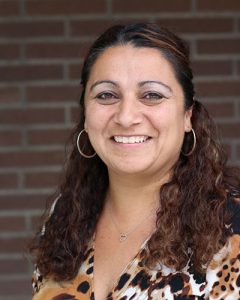
The McNair Scholars Program is designed to prepare first-generation and low-income or minorities who are underrepresented in higher education for doctoral studies through involvement in mentoring, research and other scholarly activities.
The Department of Education (DOE) General Administrative Regulations defines first generation students as those whose natural or adoptive parents have not received a baccalaureate degree. Groups who are underrepresented in graduate education include African-Americans, Hispanic Americans and Native-Americans (including Hawaiian, South Pacific Islanders and Alaskan Natives).
Another goal of the McNair Program is to have graduated scholars become faculty members, role models and mentors for other students from underrepresented groups. As a result, these students will be more likely to graduate from a university, and faculties of American universities will better reflect the ethnic and social diversity of the American population.
By fostering mentoring relationships, promoting undergraduate research, assisting with GRE preparation and encouraging students to attend and present conferences, we aim to produce highly competitive graduate school applicants who have the skills and experiences necessary to succeed in their programs.
Program History
We are proud to be one of the 201 institutions in the U.S. and Puerto Rico to have a McNair program. The McNair Program is named in honor of Dr. Ronald E. McNair, a laser physicist and Challenger space shuttle astronaut. Dr. McNair graduated magna cum laude from North Carolina Agricultural and Technical State University in 1971 and received his PhD from the Massachusetts Institute of Technology in 1976. He was selected by NASA for the space shuttle program in 1978 and was mission specialist on the successful 1984 Challenger flight before his death in the Challenger disaster of 1986. Those who knew Ronald McNair characterized him as fearless, determined and accustomed to applying all available resources to any problem he faced.
The development of a program for preparing first-generation college students was already in place before the Challenger disaster. The DOE wanted to level the playing field for populations underrepresented in graduate education. A call for grant proposals went out and in 1986, 14 original grants were awarded. The McNair program is funded by the Congress through the DOE.
Contact

Dr. Melvin F. Simoyi
Director, McNair Scholars Program
(509) 865-8567
Simoyi_M@heritage.edu

Kazuhiro Sonoda, Ph.D.
McNair Scholars Program Coordinator
(509) 865-8538
Sonoda_K@heritage.edu

Terri Slack
Administrative Coordinator
(509) 865-8543
Slack_T@heritage.edu
